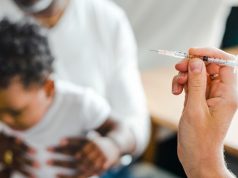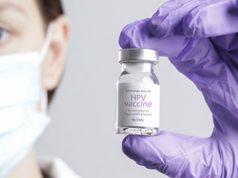SARS-CoV-2 infection associated with short-term transient decline in fertility for men
THURSDAY, Jan. 27, 2022 (HealthDay News) — COVID-19 vaccination is not associated with fecundability among couples trying to conceive, according to a study published online Jan. 20 in the American Journal of Epidemiology.
Amelia K. Wesselink, M.P.H., from the Boston University School of Public Health, and colleagues examined the associations of COVID-19 vaccination and severe acute respiratory syndrome coronavirus 2 (SARS-CoV-2) infection with fertility among couples trying to conceive spontaneously. A total of 2,126 self-identified women were enrolled during December 2020 to September 2021 and were followed through November 2021. Questionnaires on sociodemographics, lifestyle, medical factors, and partner information were completed every eight weeks.
The researchers found that COVID-19 vaccination was not appreciably associated with fecundability in women or men (female fecundability ratio [FR], 1.08; 95 percent confidence interval [CI], 0.95 to 1.23; male FR: 0.95; 95 percent CI, 0.83 to 1.10). There was no association for female SARS-CoV-2 infection with fecundability (FR, 1.07; 95 percent CI, 0.87 to 1.31), while male infection was associated with a transient reduction in fecundability (FR, 0.82 [95 percent CI, 0.47 to 1.45] for infection within 60 days; FR, 1.16 [95 percent CI, 0.92 to 1.47] for infection >60 days).
“These results can be used to guide informed decision-making around COVID-19 vaccination among reproductive-aged individuals, particularly those who are trying to conceive now or in the future,” the authors write.
One author disclosed financial ties to the pharmaceutical and other industries.
Abstract/Full Text (subscription or payment may be required)
Copyright © 2021 HealthDay. All rights reserved.








